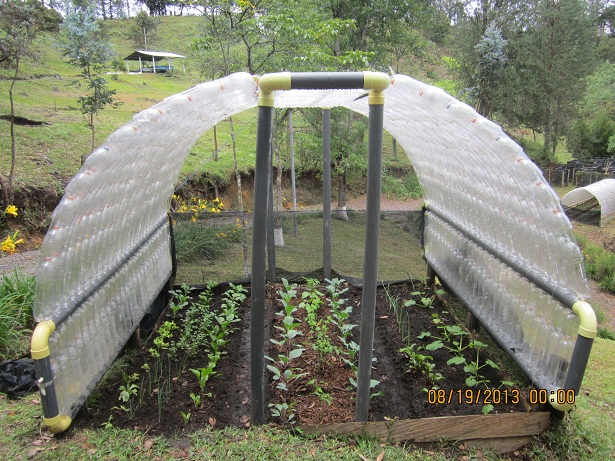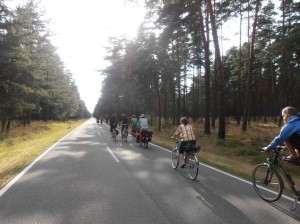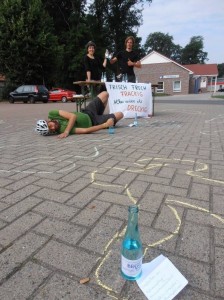Climate Change Denial: Crudely does it
 What is so fascinating about climate change denial is not that it denies climate change, but that it does it so crudely. Last weekend we came across one very fine example that we thought is too good to keep from you, dear readers – even though it is not that recent: In February, the web edition of Forbes magazine ran a piece titled “Peer-Reviewed Survey Finds Majority Of Scientists Skeptical Of Global Warming Crisis”. Really? Finally, a sea change in scientific opinion?
What is so fascinating about climate change denial is not that it denies climate change, but that it does it so crudely. Last weekend we came across one very fine example that we thought is too good to keep from you, dear readers – even though it is not that recent: In February, the web edition of Forbes magazine ran a piece titled “Peer-Reviewed Survey Finds Majority Of Scientists Skeptical Of Global Warming Crisis”. Really? Finally, a sea change in scientific opinion?
Not quite. In fact, not at all. This lazy piece penned by James Taylor, a contributor to Forbes.com, deliberately leaves out the fact that the people surveyed were geoscientists and engineers. Plus, that they are all members of the Association of Professional Engineers and Geoscientists of Alberta, Canada and mostly in the pay of the petroleum industry – the largest employer in the region. It’s like polling the scientific advisers of the tobacco industry on the risks of smoking.
Of course, scientists will always differ on issues, especially important ones like Global Warming. But there is a scientific consensus that human-caused Climate Change is happening. And even if you hate this consensus, it does not go away. Not even if you misrepresent the facts. And to do so in such a crude fashion is just lame. But to insult your readers’ intelligence doesn’t go unpunished: Forbes readers duly tore the piece apart – and provided the details this simulation of “journalism” so conveniently left out. We assume James Taylor didn’t care and was too busy scribbling together his next climate sceptic hit jobs – a look at the Forbes archive of his articles suggests it was not his last one…
Debating Climate Change: The View from Japan
We love to hear how our stories and ideas on climate protection are received in other parts of the world. So when receiving emails from our GLOBAL IDEAS audience, we read their comments with great interest. But there is one who sticks out. Masao Honma from Japan has commented on almost every one of our close to 200 GLOBAL IDEAS reports and background articles. We have collected an impressive amount of messages flying from Masao’s house in Niigata to our Berlin office. Thank you Masao for your constant support and insight! It’s always a pleasure to see your name pop up in our mail accounts! We have asked Masoa Honma for permission to publish some of his comments providing an insight into the climate change debate in Japan.
Green shipping
In one of our animated info films we asked the question “How bad for the environment are cruise ships?” But how is Japan dealing with CO2 emissions from it’s very own shipping industry? Here’s Masao’s take on the issue:
In Japan government organizations are developing “Super Eco Ship” technologies for commercial use – but I think this is too expensive for cargo ships at this stage. [Maybe it’s better] to first change passenger boats into Super Eco Ships. The human load of passenger ships must have great interest in protecting the environment.
Fire fighting to save the climate
In our report on managing wild fires in Brazil, we learned that fire isn’t just destructive – in fact, there are ecosystems that thrive on regular blazes. Japanese farmers also actively make use of fires:
In Japan, some farmers set fire to their meadows at the beginning of the season, to clear dead grass and harmful insects. It is confined to a limited area and watched over by the fire brigade.
People aren’t responsible for climate change
In another text, scientists are countering three of the most common arguments of climate change sceptics. What about climate change scepticism in Japan?
In Japan, climate change scepticism is not so popular in public, even though the people have a high pro-business attitude. One reason may be the optimistic attitude of the Japanese. They don’t oppose mainstream science, but think the effects of climate change [will be felt only] much later. But there are some unignorable signs, even today: last year a tornado hit a town in the area of Tsukuba, not far from Tokyo. In the past, tornadoes used to be very rare in Japan. I myself feel that the weather patterns these years are strange. Denying the facts of climate change is crazy!
Plastic bottles to greenhouses
 A few days ago we received a very inspiring idea from Colombia. The e-mail came from the Centre for Science and Environmental Awareness and it helps to deal with growing mountains of empty plastic bottles.
A few days ago we received a very inspiring idea from Colombia. The e-mail came from the Centre for Science and Environmental Awareness and it helps to deal with growing mountains of empty plastic bottles.
We learned from the institute’s website that in Colombia an incredibly large amount of 15,000,000 plastic bottles is dumped every day. These bottles are not only thrown into trash bins, they are mainly just thrown away somewhere and this way become a very serious environmental problem.
The Centre for Science and Environmental Awareness tries to tackle the problem. As you can see in the picture, greenhouses are built to grow daily goods. The plastic-bottle-roofs have a size of about 3×3 meters. With only 4 hours work a week the roofs help to feed a family for a whole year, writes Carlos Alberto Yepes Vera, director of the center.
He also calls out to donate bottles or similar garbage to build more of these houses. The project’s goal, he says is also to build an awareness among the population to avoid the use of plastic bottles.
We are extremely grateful to hear from ideas like this one, so send us more of it!
A “die-in” energy protest
It’s the third week of the Reclaim Power Tour, a political bicycle tour, crossing Germany from East to West, covering about a thousand kilometers. Dorothee Häußermann, who’s part of the tour, blogs about meeting different energy activists and an anti-fracking campaign that ends with an unusual protest.
During the tour, we’re visiting different hot spots of a grassroots energy transition: climate camps against open-cast coal-mines, members of the anti-nuclear movement, co-operatives who build their own wind turbines and so on. The aim of the tour is to connect these active local groups in a large network, so we can build a strong movement for a eco-friendly and democratic energy supply that can curb climate change.
We’re curently crossing the state of Lower Saxony. It’s a farming region dotted with small villages and endless corn fields. The area is the focus of various energy companies because of the presence of shale gas reserves in the ground. The companies are currently carrying out test drills to find out if they can exploit the shale gas with a method called ‘hydraulic fracturing’, also known as ‘fracking’. This is a technique in which a mixture of water, sand and chemicals is injected at high pressure into a wellbore to create small fractures in the rock. The sand keeps these fractures open so the gas can be extracted. In recent years, the technique has been at the centre of a highly controversial debate in Germany. There is evidence that the chemicals used in the fracking process could contaminate rivers and drinking water reservoirs.
After 70 kilometres of cycling, we are scheduled to meet a local initiative that is determined to drive away ExxoMobile, a corporation that has been doing test drills in the area. A group of 15 people is awaiting us on the local sports ground where we can put up our tents. They’ve made delicious lentil soup and vegan salads for us, and put sausages on the grill for themselves. The day has been long and hot, and I would love to have a shower, grab one of the beers they are kindly offering, and then collapse in my sleeping bag. But we have some work to do: we are planning a street protest the following day in town that needs preparation. And of course we have to get to know each other, and hear about the people’s fears – about the test drills right in front or below their houses – and about how they have managed to mobilize a large part of the town to take a stance against fracking. And after (temporarily) overcoming my exhaustion, I’m enjoying it. After all, that’s why we are on the road. To get to know local groups, to learn from their expertise, but also, to contribute a new perspective to the discussion: To see fracking as part of an energy system that exploits the last fossil fuels on the planet, in order to keep up an economy that puts growth and profit before the welfare of nature and people. We saw many other sides to the energy debate earlier on the route.
The next morning, we meet at the market square for our”die-in” protest. We offer mock passers-by samples of water with suspicious names, resembling chemicals used in hydraulic fracturing, praising their quality. The bottles are adorned with labels such as “Eau de Frack – con gas – probably not poisonous” or “BioCide – makes you fractive for the day”. Unfortunately, some of the pedestrians collapse after drinking and die on the spot. Opposite our little street performance, the local initiative talks to people and collects signatures for a petition.
After a couple of hours on the market, we pack our bikes and move on. Our next destination awaits us – it’s the next stage of our struggle for a democratic and green energy system.
‘Hands off my sausage,’ say Germans to meat-free proposal
Rice and beans instead of sausages and meat? The very idea of eathing just vegetarian fare – even if it’s just once a week – has many meat-loving Germans up in arms. Find out why.
The whole kerfuffle began earlier this week with Germany’s opposition Green Party saying they planned to roll out a weekly vegetarian day if elected. Yes, Germany is in full campaign mode with six campaign weeks left until national elections.
So, what’s the fuss about? The Greens say one day each week, workplace cafeterias at federal government institutions would be banned from serving any meat dishes or products. The environmentally-friendly party hopes that would become a model for corporate and school canteens.The party says lower meat consumption would reduce the impact of farming on the environment, lead to an increase in quality and better conditions for animals.
“A veggie day is a wonderful day to try out how to nourish oneself without meat and sausage for once,” Green Party leader Renate Künast told mass-market daily Bild this week.
But, many think otherwise. Though environmental groups have welcomed the proposal, it’s sparked uproar in the country. Some lawmakers have said it smacks of a lecturing attitude. German Agricultural Minister Ilse Aigner was quoted through a spokesman that “we don’t place much stock in paternalism. At the end of the day, we need a balanced diet and meat is part of that.”
Meat certainly is a big part of German‘s lives. Estimates suggest that per capita meat consumption in the country per year is 60 kilograms (against a global average of 42 kg per-capita annually).
A recent United Nations study suggested people in the industrialized world should halve their meat consumption, saying the demand for ever cheaper meat is ruining the planet by leading to a massive expansion of intensively farmed livestock, diverting vast quantities of grain from human to animal consumption and requiring intensive use of fertilisers, pesticides and herbicides.
But many meat-loving Germans remain unconvinced. Members of the youth wing of the Free Democrats (FDP) even organized a spontaneous street barbeque this week in front of Green Party headquarters in Berlin. Some members held up slogans saying “Hands off my sausage.”












Feedback